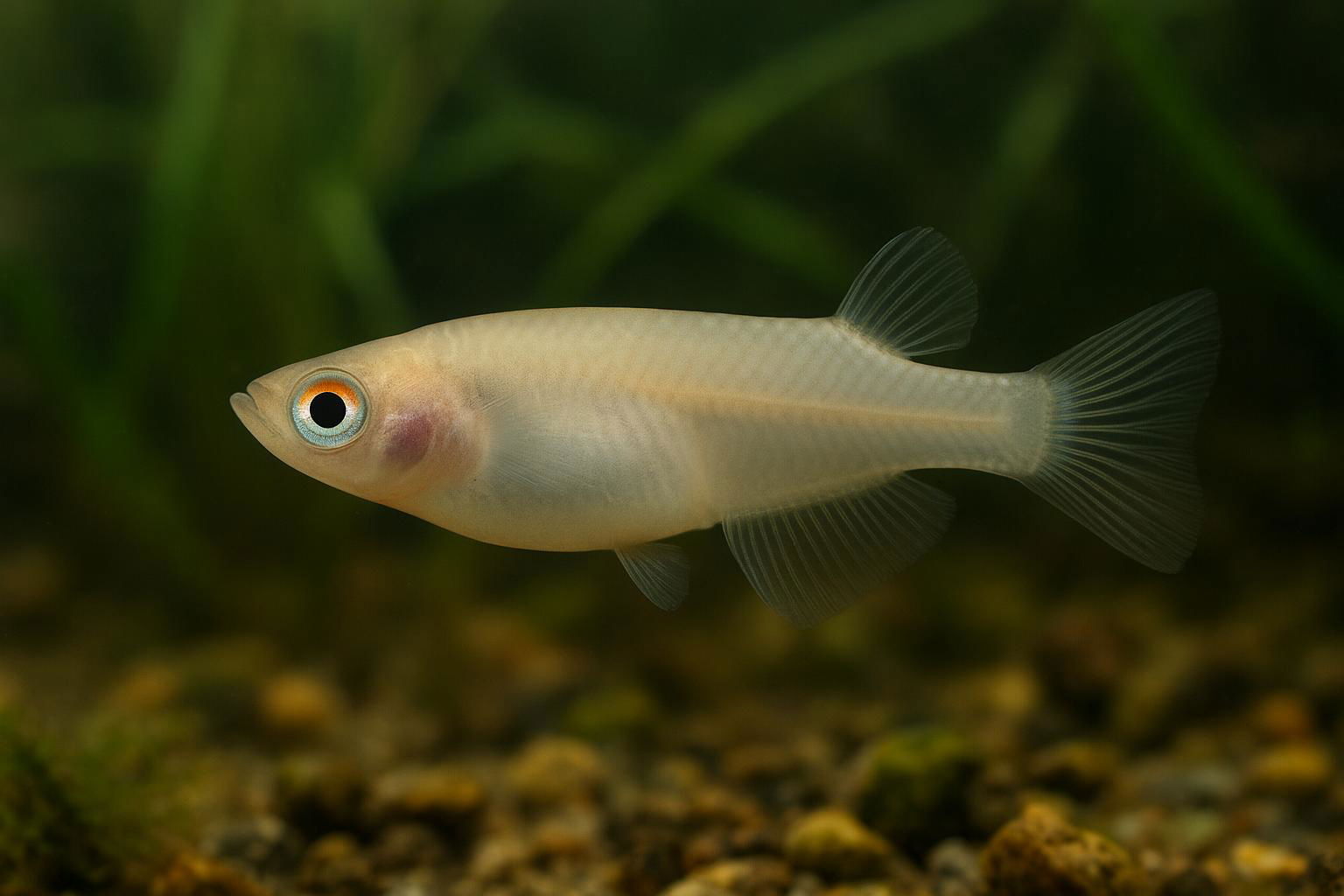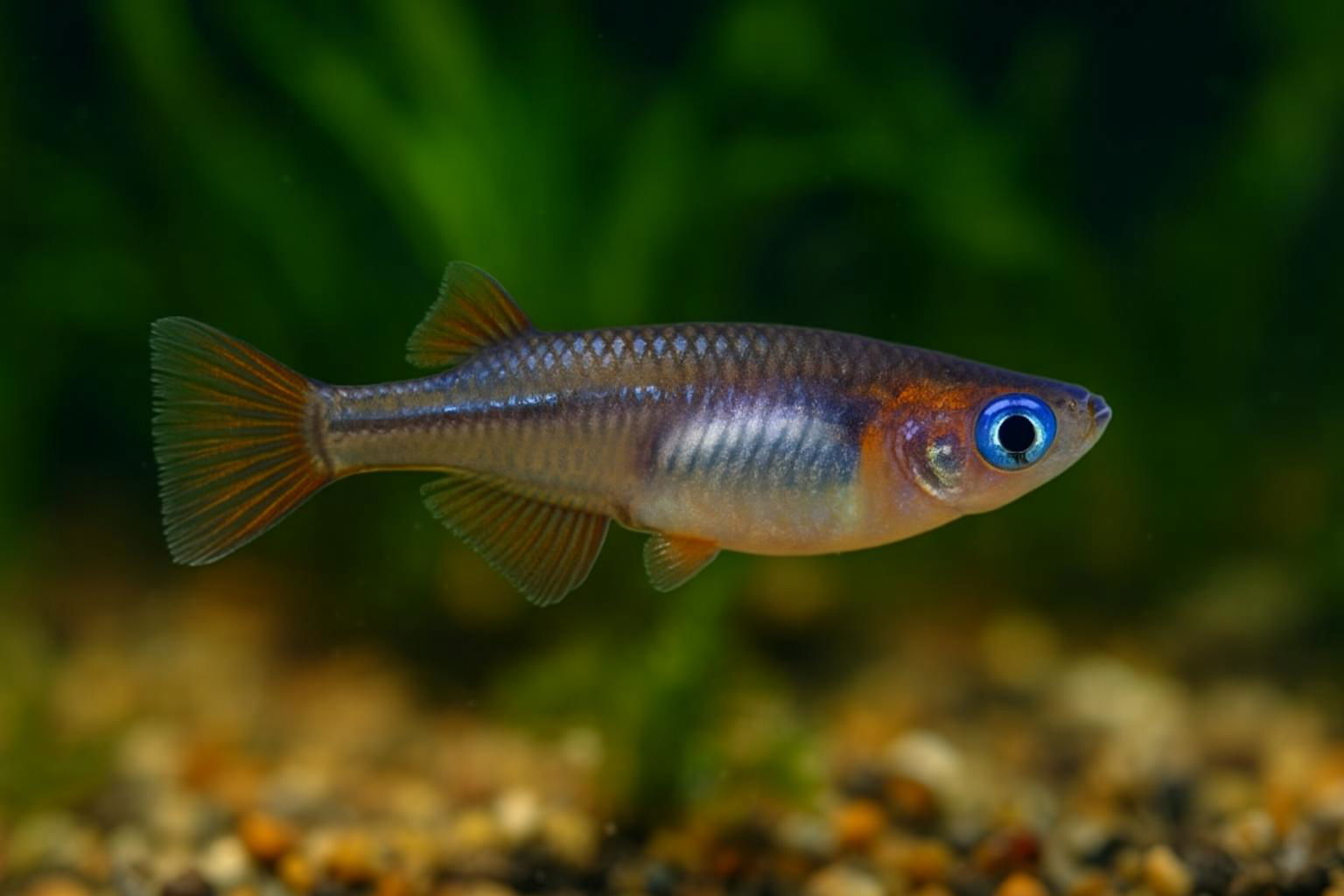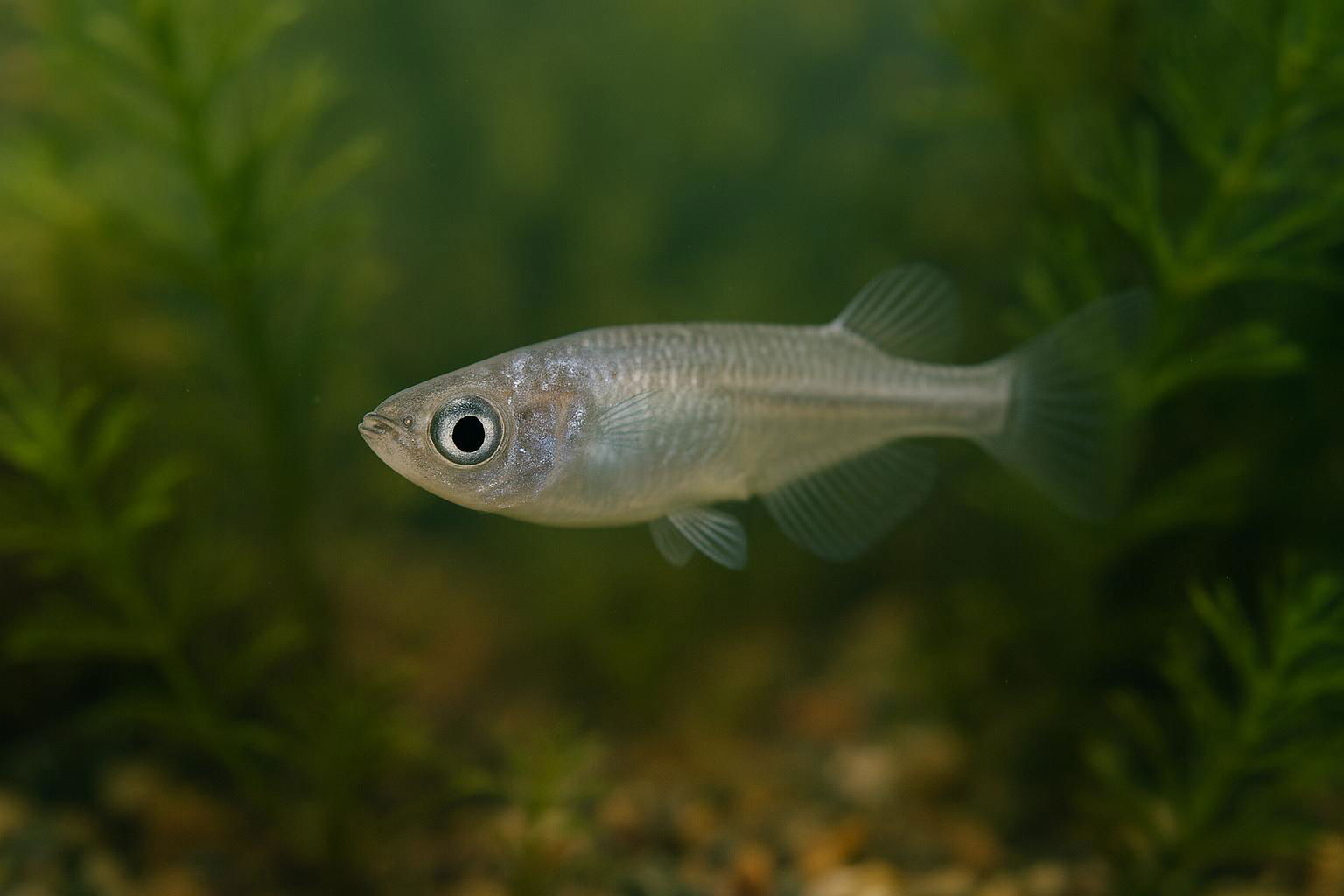
Laboratory Medaka
Oryzias latipes
The Laboratory Medaka, scientifically known as Oryzias latipes, is a small freshwater fish native to East Asia, including Japan, Korea, and parts of China. This species typically grows to about 3 to 4 centimeters in length, making it an ideal subject for laboratory research due to its manageable size, hardy nature, and rapid life cycle. Medaka is renowned for its remarkable adaptability, thriving in a variety of aquatic environments, from rivers and ponds to rice paddies.
In terms of appearance, Laboratory Medaka exhibit translucent bodies with a wide spectrum of color variations, including golden, albino, and wild-type brown. Their scales are delicate, and they possess a streamlined shape that facilitates swift swimming. Medaka fish are oviparous, laying transparent eggs that allow for detailed observation of embryonic development, making them a valuable model organism in genetics, developmental biology, and environmental science research.
The species' genome has been fully sequenced, providing insights into vertebrate evolution and genetics. Additionally, Medaka's ease of breeding and ability to reproduce in controlled environments make them a staple in laboratories worldwide, contributing significantly to studies on mutation, cancer research, and the impacts of environmental changes. Their social behavior and minimal care requirements further underscore their importance in educational and scientific settings.

 All Species & Breeds
All Species & Breeds
 Highland Cattle
Highland Cattle
 Miniature Donkeys
Miniature Donkeys
 All Species Directory
All Species Directory
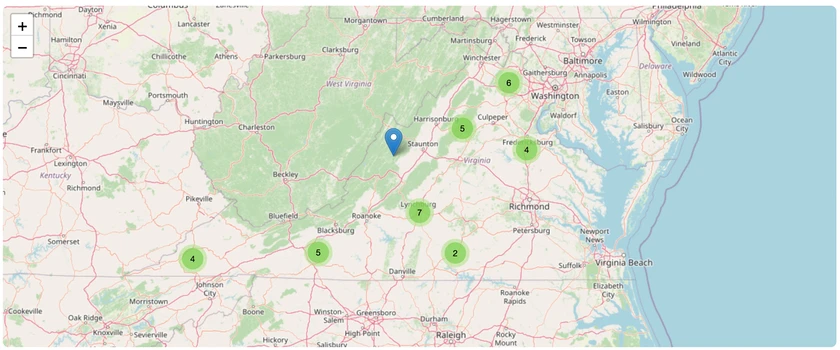 Highland Cattle in Virginia
Highland Cattle in Virginia
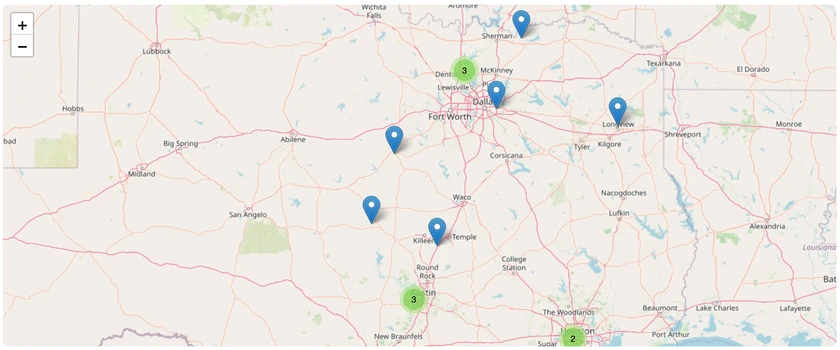 Miniature Donkeys in Texas
Miniature Donkeys in Texas
